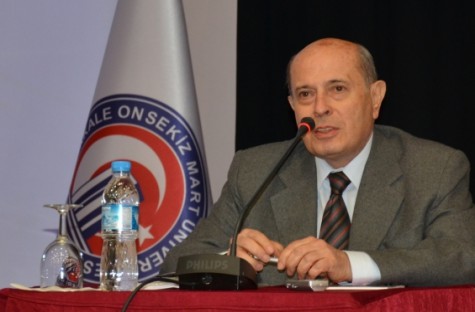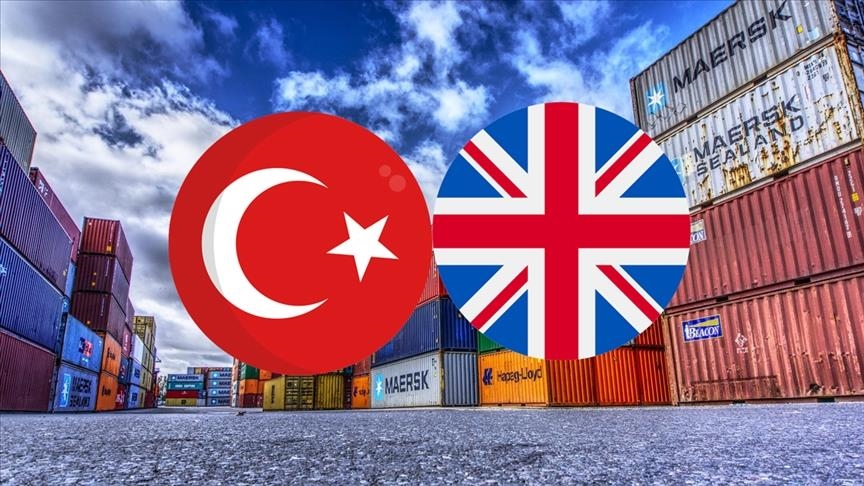
Ömer Engin LÜTEM
6 June 2014
In a speech made during a session of the “commission coordinating the events dedicated to the 100th anniversary of the Armenian Genocide”on May 27, Armenian President Sarkisian has officially invited the Turkish President to visit Armenia on 24 April 2015 to face the historic evidence of the so-called Armenian genocide.
This uncommon invitation seems to have two goals. The first is that it is an indirect expression of the fact that the new political opening Prime Minister Erdoğan initiated by expressing his condolences to the grandchildren of the Armenians who died during the First World War has not been acknowledged. The second is the effort to humiliate the President of Turkey. Or else, how can the attempts to ensure genocide recognition through an invitation to the President of a country, where the overwhelming majority does not believe that the events of 1915 were genocide, to visit Yerevan on 24 April be explained other than the intention of humiliating the President?
When one looks at the past, it is observed that Armenian President Levon Ter Petrosian and his predecessor Robert Kocharian carefully avoided provoking Turkey by bringing forward the genocide allegations. Serj Sarkisian followed this policy as well until the Protocols failed in 2010. Following this, he changed his stance, did not accept Turkey’s initiatives for settlement and reconciliation, started to support what was propounded for the most part by the Diaspora in the past and to request that Turkey recognize the genocide allegations.
Sarkisian’s attitude is unlikely to comply with the Armenian interests, as it is known that Turkey-Azerbaijan cooperation increases as Turkey-Armenia relations deteriorate. What comes to mind is that others whom he can’t decline encouraged him to act and make some initiatives that would put Turkey on the spot. These encouragements may have been done by those who are uncomfortable with Turkey’s policies with regard to Syria, Israel, Iraq, Iran and some other issues. It is probable that it was planned to convey a strong warning drawing on the genocide allegations and that “ Sword of Damocles” was given to Armenia, in the view of the fact that Turkey, despite some warnings, has not changed its stance with regard to the aforementioned issues.
Although it is a sensational incident that Sarkisian has invited the Turkish President to Yerevan on 24 April next year, this has not created any reaction in Turkey neither on the political level nor in the public opinion. This is probably a consequence of the fact that Turkey’s internal political agenda is very loaded.
Thus, as the aforementioned invitation has not served what it was aimed for, a Professor stepped in, stood up for the invitation[i] and claimed that Turkey should politically recognize the genocide and that the President should not decline the invitation and visit Yerevan. As for what benefits this would bring, he said this would: “eliminate the burden of history”, “to move up to a morally superior level”, “break the routine” and “transform the 100th anniversary to a manageable issue”.
If a public opinion survey is conducted, how many would say that they feel the burden of the history? To have a high ground on foreign policy is possible not through “moral” notions and acts, but rather if a country is powerful. As recognition of the genocide is a key part of especially the Diaspora Armenians, it will not “break the routine” if President of Turkey visits Yerevan; it can even strengthen it. On the other hand, it would not be right to exaggerate events planned for the 100th anniversary. Armenians will do, more intensely and diversely, whatever they have done up until now against Turkey. These can affect the public opinion in Western countries and therefore it can create some discomfort in Turkey. But it will not probably reach to a level of harming Turkey’s interests.
To date, parliaments of 20 countries have taken decisions to recognize the Armenian genocide allegations. None of the governments of these states have officially demanded that Turkey recognize the genocide allegations, pay compensation and, above all, give land to Armenia; they have not even made a mention of any of these. Turkey’s power and its important strategic position have prevented these demands to be put forward. In accordance with the UN Convention on Genocide, in order for an event to be recognized as genocide, a special national court or an international criminal court should make a decision. There is no such verdict. The borders between Turkey and Armenia were determined according to the Kars Treaty of 1921, which is still valid. The Lausanne Treaty did not stipulate any war compensations.
Briefly, as mentioned above, in the legal arena there is no Armenian issue. In the political arena, it is considered and aimed to create the Armenian issue over again by taking advantage of the genocide allegations and to use this process to keep Turkey in check. It would be more realistic to consider the Armenian conduct and demands in this perspective.
[i] Star, 31 May 2014. Mensur Akgün “Ankara Erivan’a Hayır Dememeli (Ankara Should not Say No to Yerevan)”
© 2009-2025 Center for Eurasian Studies (AVİM) All Rights Reserved
No comments yet.
-
ARMENIAN PROPERTIES
Ömer Engin LÜTEM 22.12.2010 -
RIGHTS OF THE CHRISTIANS IN TURKEY AND THE US CONGRESS
Ömer Engin LÜTEM 20.06.2011 -
EXPECTATION OF CONDOLONCE
Ömer Engin LÜTEM 01.05.2014 -
THE DRAFT RESOLUTION IN THE US REGARDING THE CHURCHES AND PROPERTIES IN TURKEY AND THE TURKISH REPUBLIC OF NORTHERN CYPRUS
Ömer Engin LÜTEM 30.06.2014 -
FRANCE AND THE ARMENIAN GENOCIDE ALLEGATIONS
Ömer Engin LÜTEM 17.01.2011
-
ARMENIA AND THE ARMENIAN DIASPORA
Alev KILIÇ 08.10.2012 -
THE MOSCOW SUMMIT OF THE COLLECTIVE SECURITY TREATY ORGANIZATION
Alev KILIÇ 23.12.2012 -
THE ARMENIAN QUESTION AFTER THE HOLIDAYS IV
Ömer Engin LÜTEM 07.09.2011 -
 THE IMPORTANCE OF EU-CHINA AGREEMENT FOR TURKEY AND THE UK
THE IMPORTANCE OF EU-CHINA AGREEMENT FOR TURKEY AND THE UK
Şevval Beste GÖKÇELİK 16.03.2021 -
 ARBITRARY AND CARELESS DISCOURSES DEGENERATE THE LEGAL DEFINITION AND CONTENT OF THE TERM GENOCIDE
ARBITRARY AND CARELESS DISCOURSES DEGENERATE THE LEGAL DEFINITION AND CONTENT OF THE TERM GENOCIDE
Teoman Ertuğrul TULUN 21.04.2022
-
25.01.2016
THE ARMENIAN QUESTION - BASIC KNOWLEDGE AND DOCUMENTATION -
12.06.2024
THE TRUTH WILL OUT -
27.03.2023
RADİKAL ERMENİ UNSURLARCA GERÇEKLEŞTİRİLEN MEZALİMLER VE VANDALİZM -
17.03.2023
PATRIOTISM PERVERTED -
23.02.2023
MEN ARE LIKE THAT -
03.02.2023
BAKÜ-TİFLİS-CEYHAN BORU HATTININ YAŞANAN TARİHİ -
16.12.2022
INTERNATIONAL SCHOLARS ON THE EVENTS OF 1915 -
07.12.2022
FAKE PHOTOS AND THE ARMENIAN PROPAGANDA -
07.12.2022
ERMENİ PROPAGANDASI VE SAHTE RESİMLER -
01.01.2022
A Letter From Japan - Strategically Mum: The Silence of the Armenians -
01.01.2022
Japonya'dan Bir Mektup - Stratejik Suskunluk: Ermenilerin Sessizliği -
03.06.2020
Anastas Mikoyan: Confessions of an Armenian Bolshevik -
08.04.2020
Sovyet Sonrası Ukrayna’da Devlet, Toplum ve Siyaset - Değişen Dinamikler, Dönüşen Kimlikler -
12.06.2018
Ermeni Sorunuyla İlgili İngiliz Belgeleri (1912-1923) - British Documents on Armenian Question (1912-1923) -
02.12.2016
Turkish-Russian Academics: A Historical Study on the Caucasus -
01.07.2016
Gürcistan'daki Müslüman Topluluklar: Azınlık Hakları, Kimlik, Siyaset -
10.03.2016
Armenian Diaspora: Diaspora, State and the Imagination of the Republic of Armenia -
24.01.2016
ERMENİ SORUNU - TEMEL BİLGİ VE BELGELER (2. BASKI)
-
AVİM Conference Hall 24.01.2023
CONFERENCE TITLED “HUNGARY’S PERSPECTIVES ON THE TURKIC WORLD"









